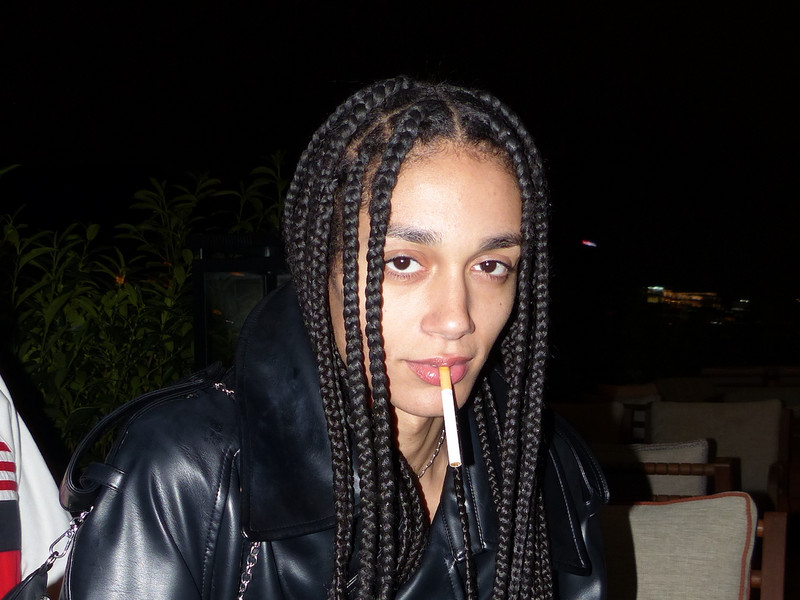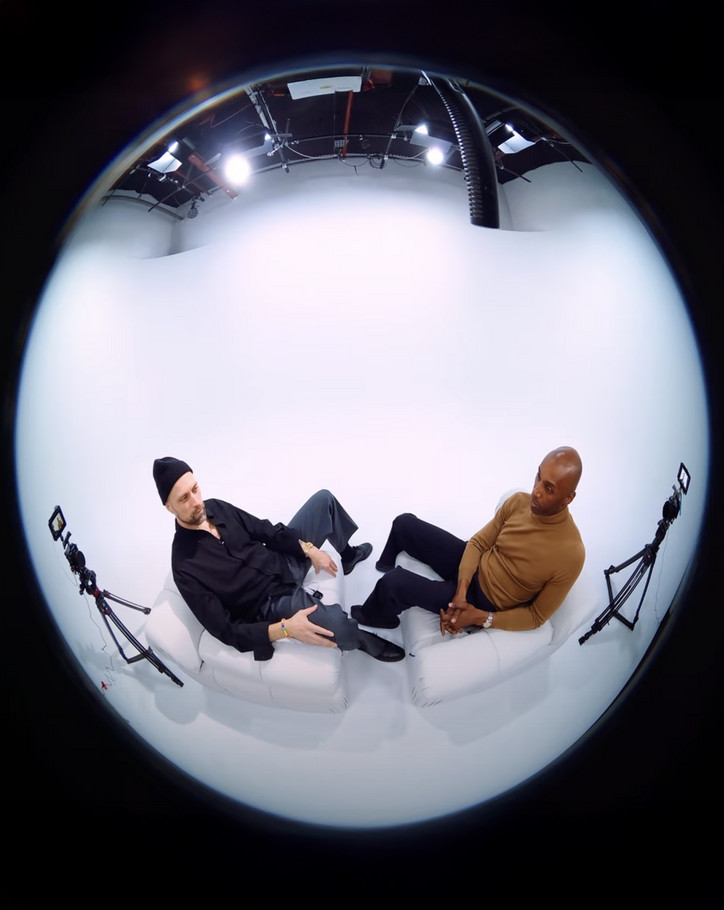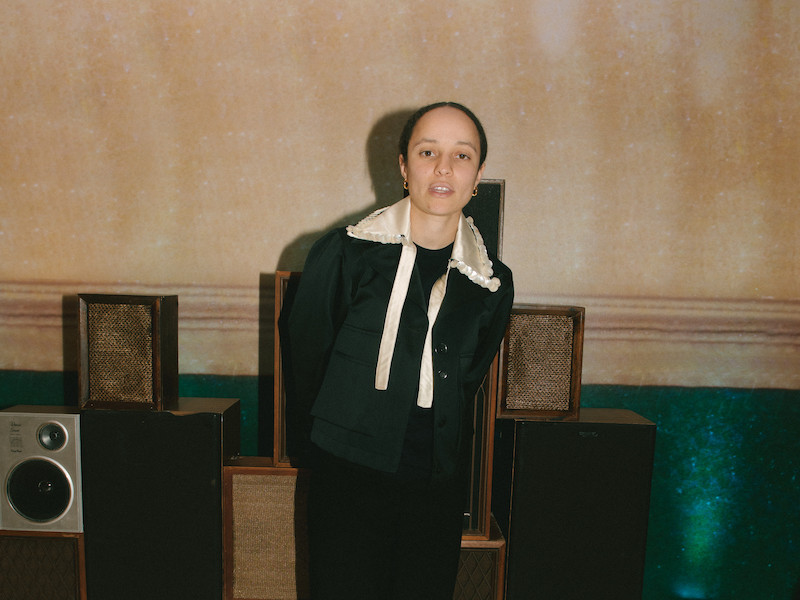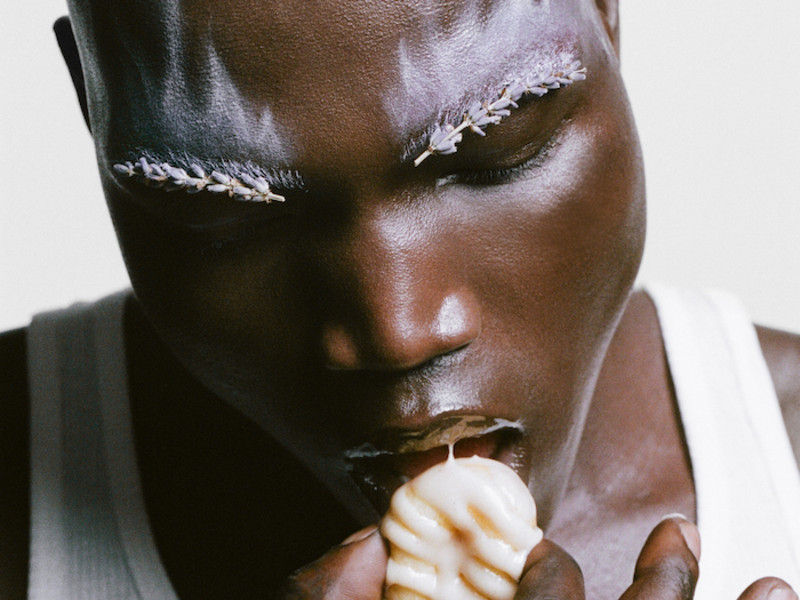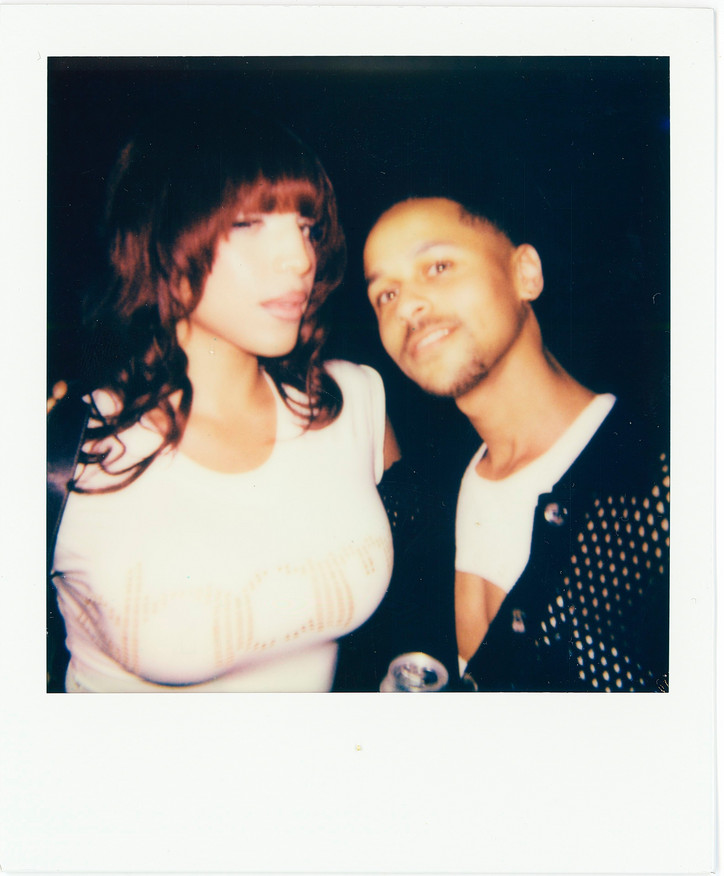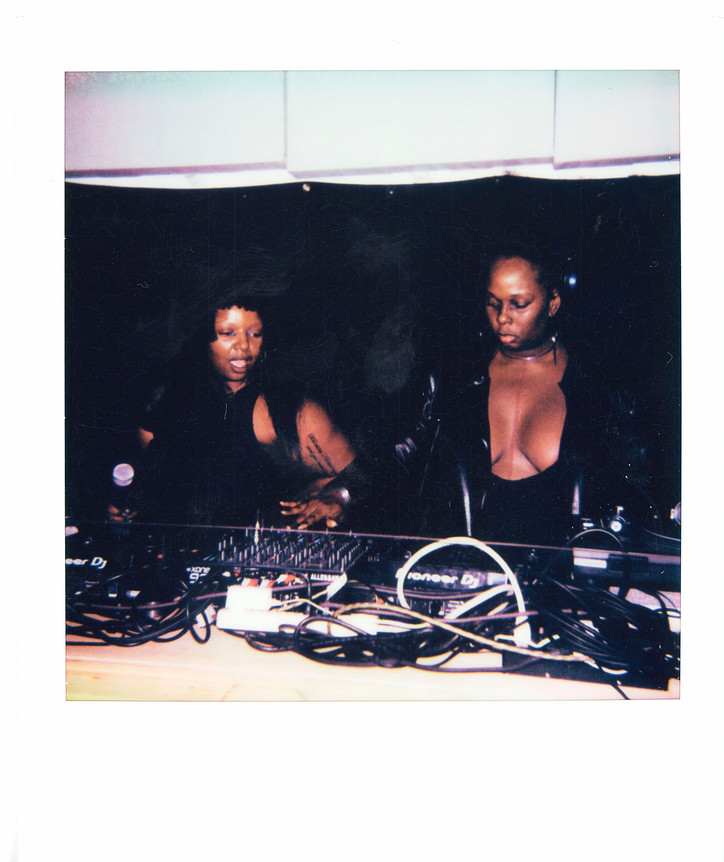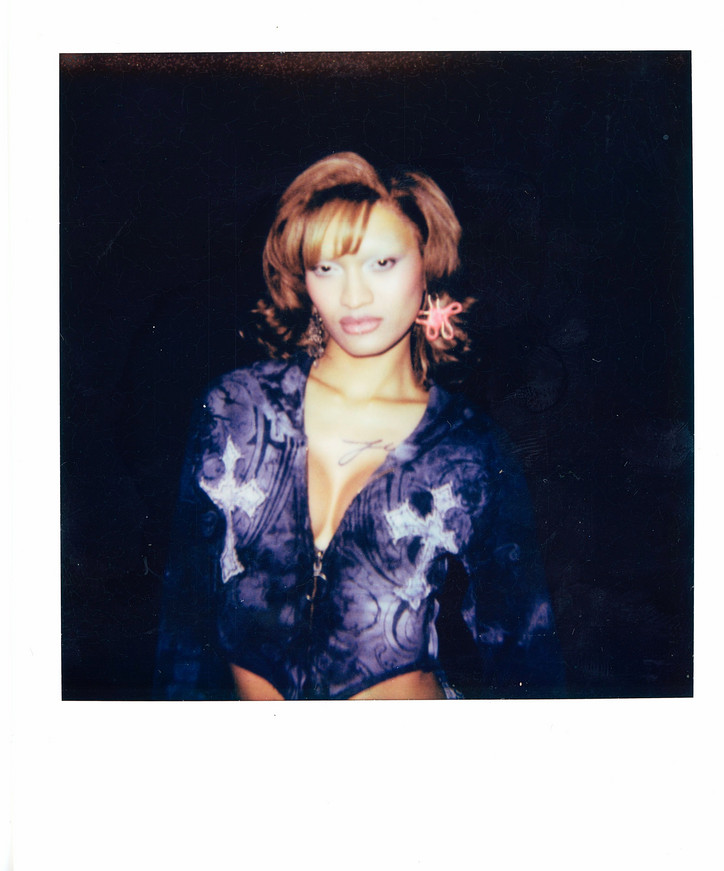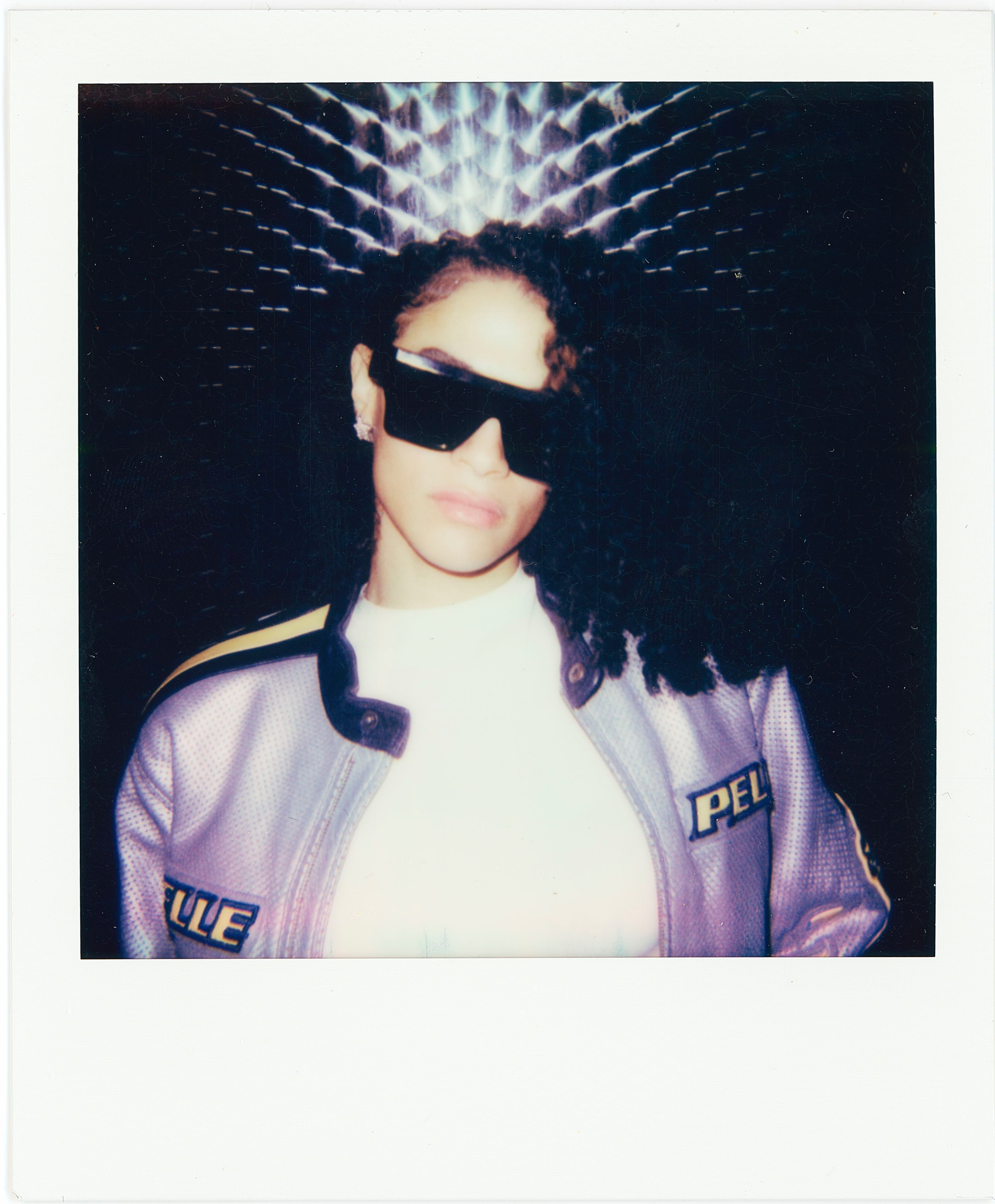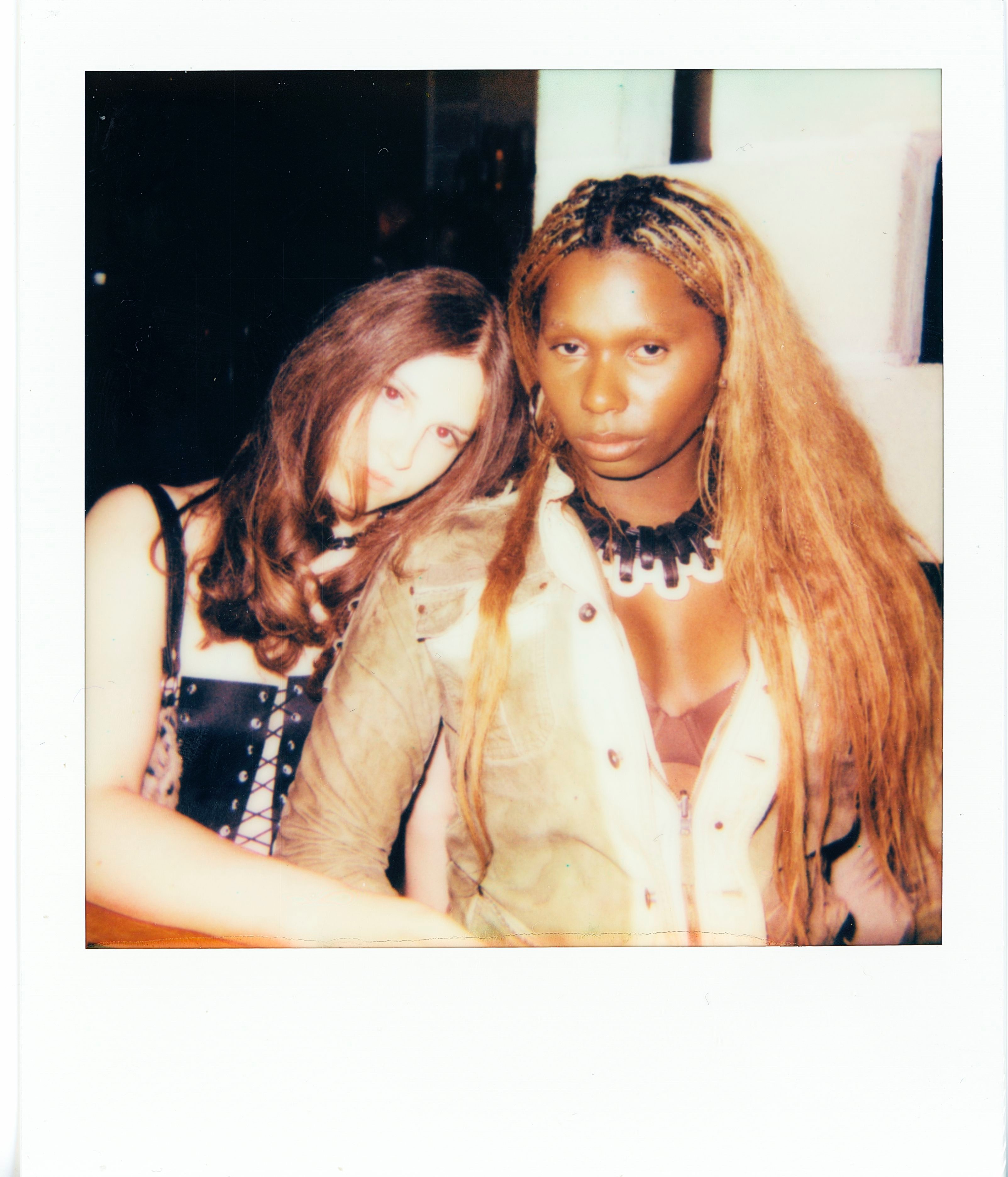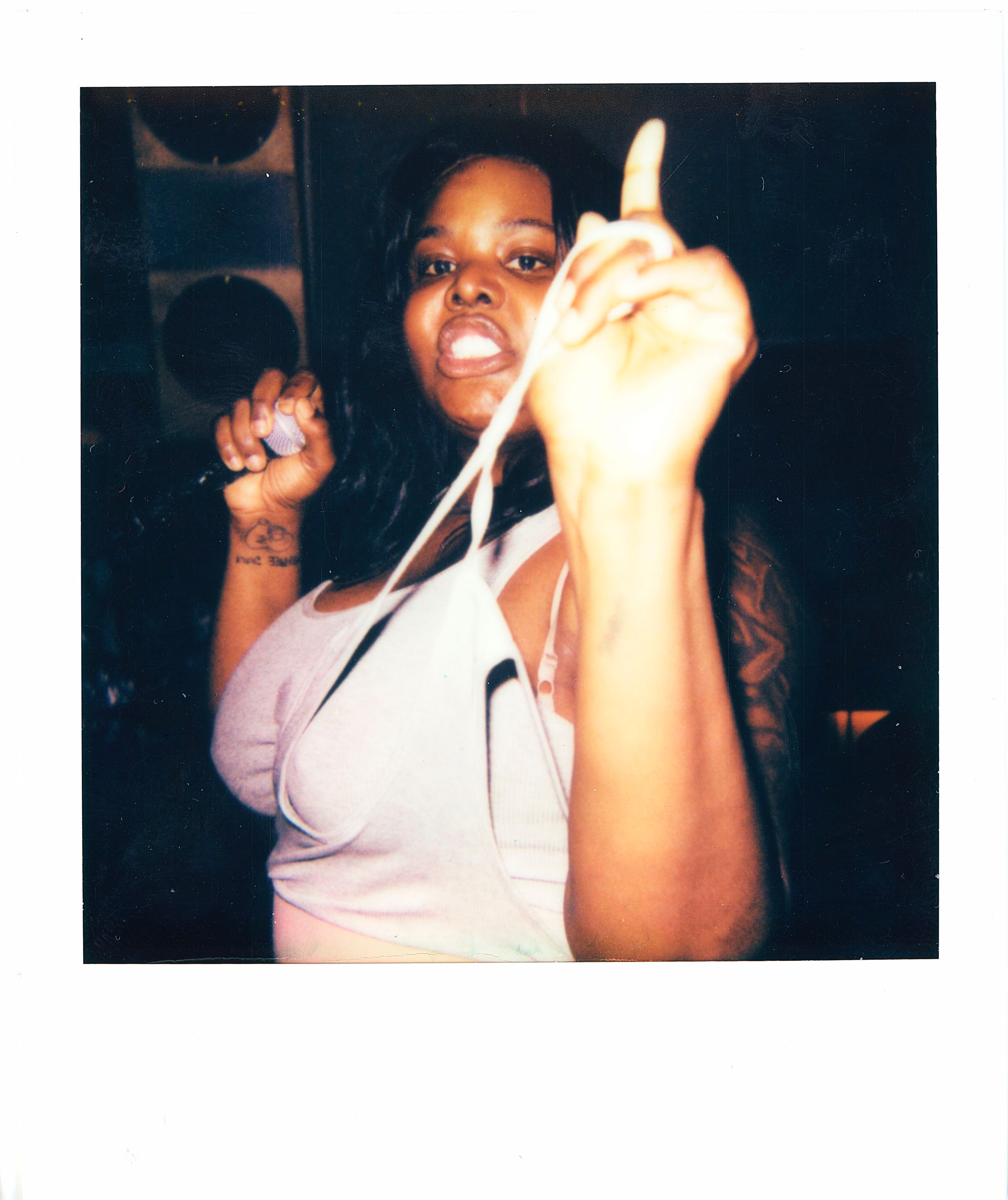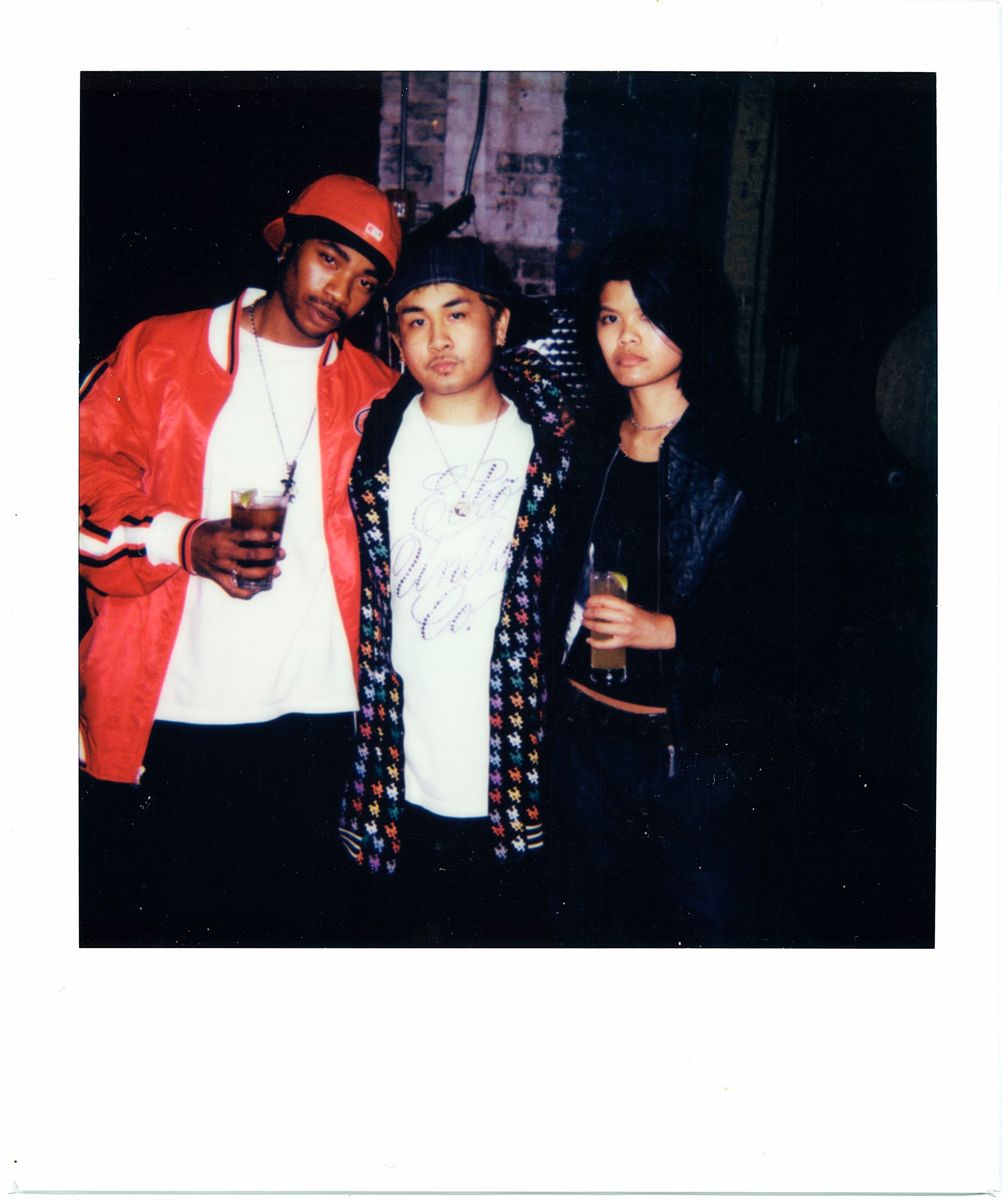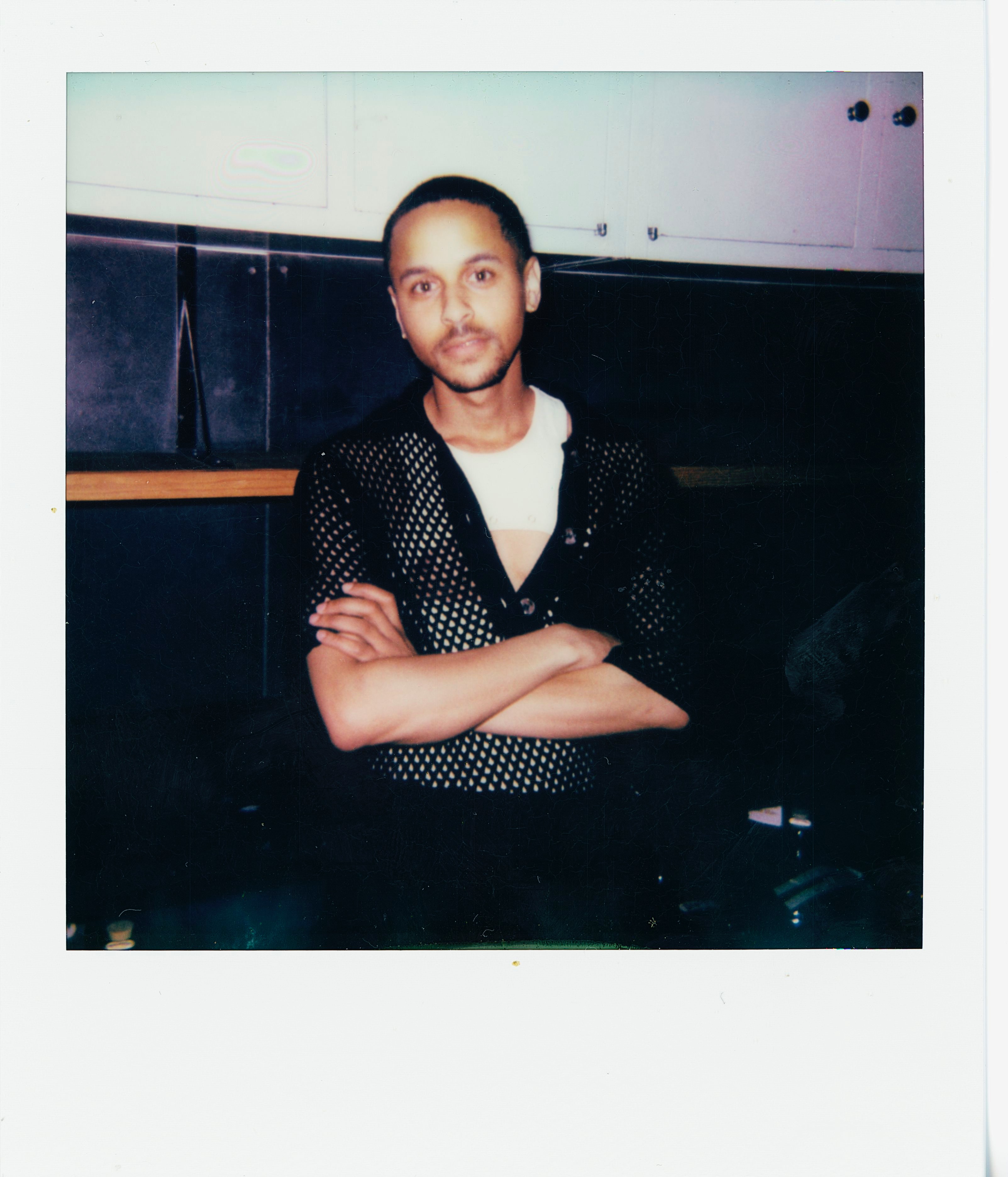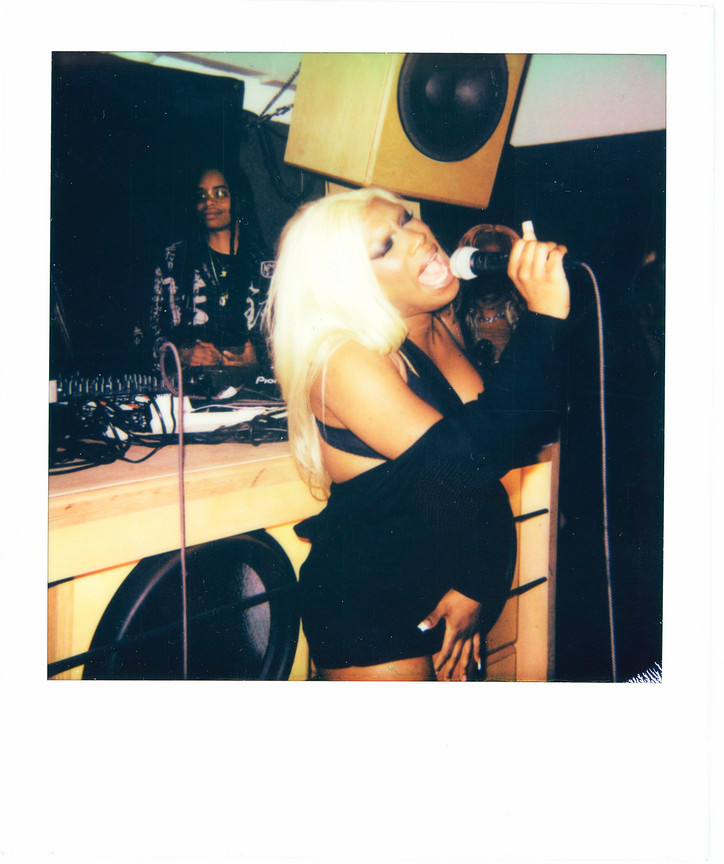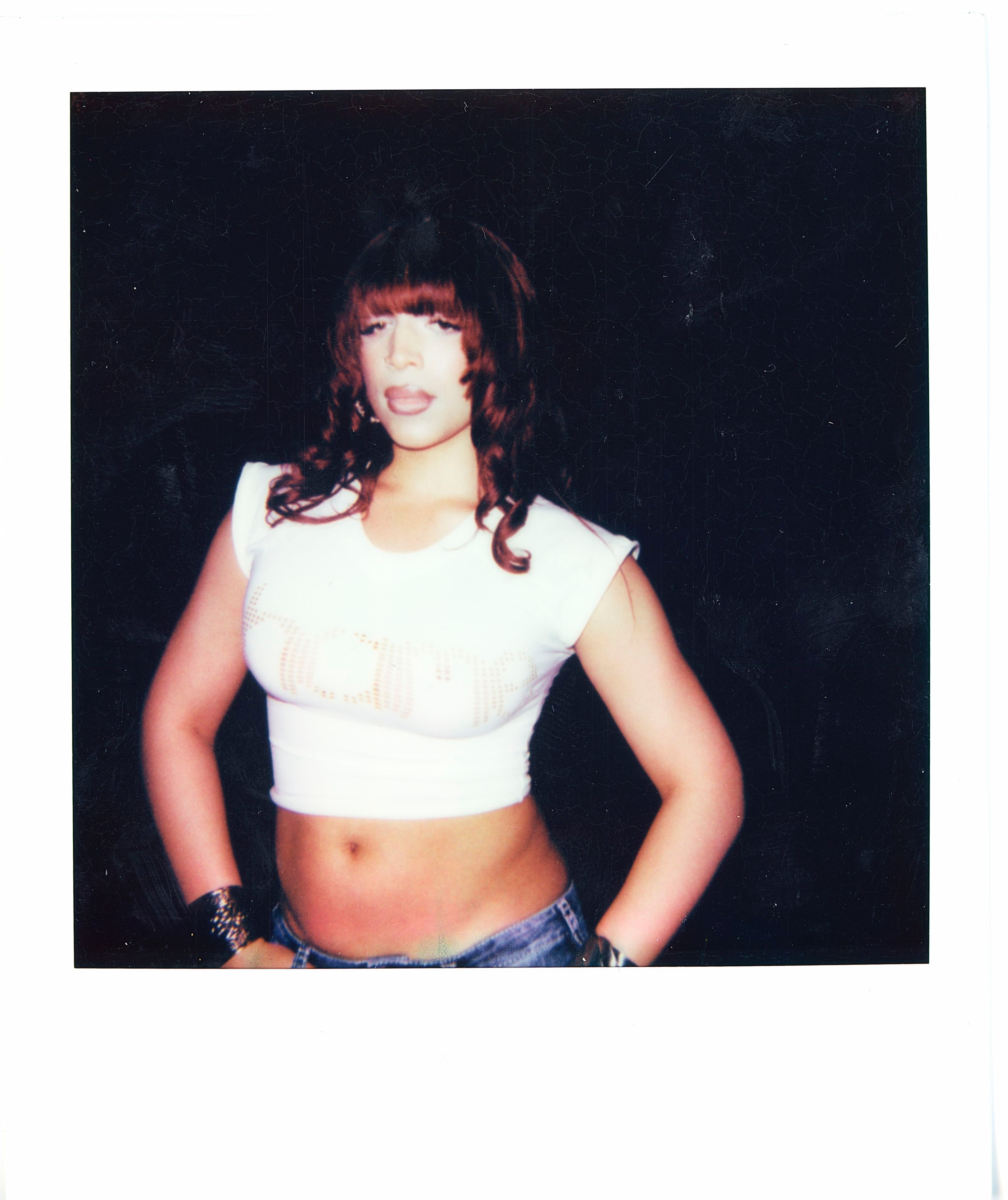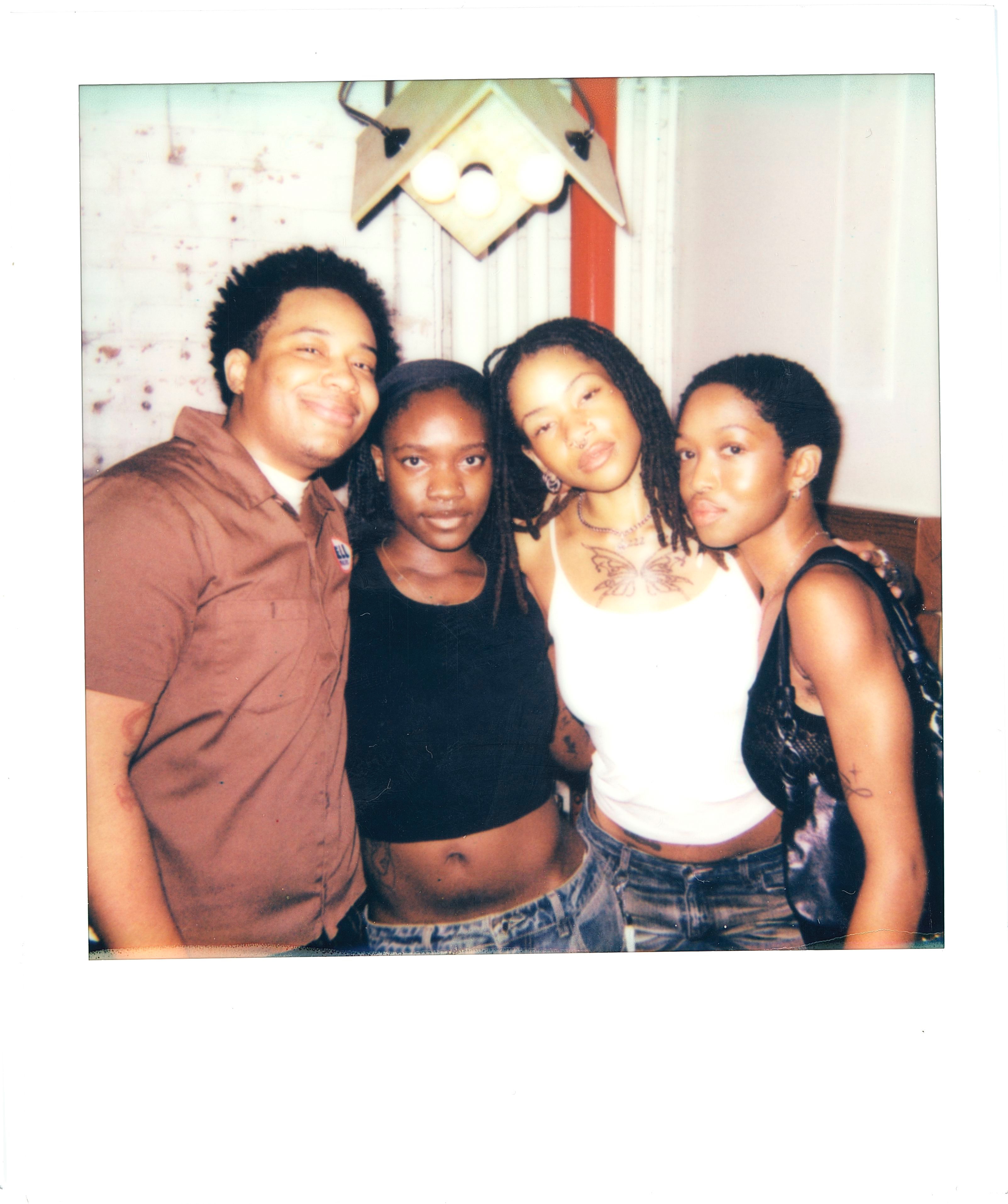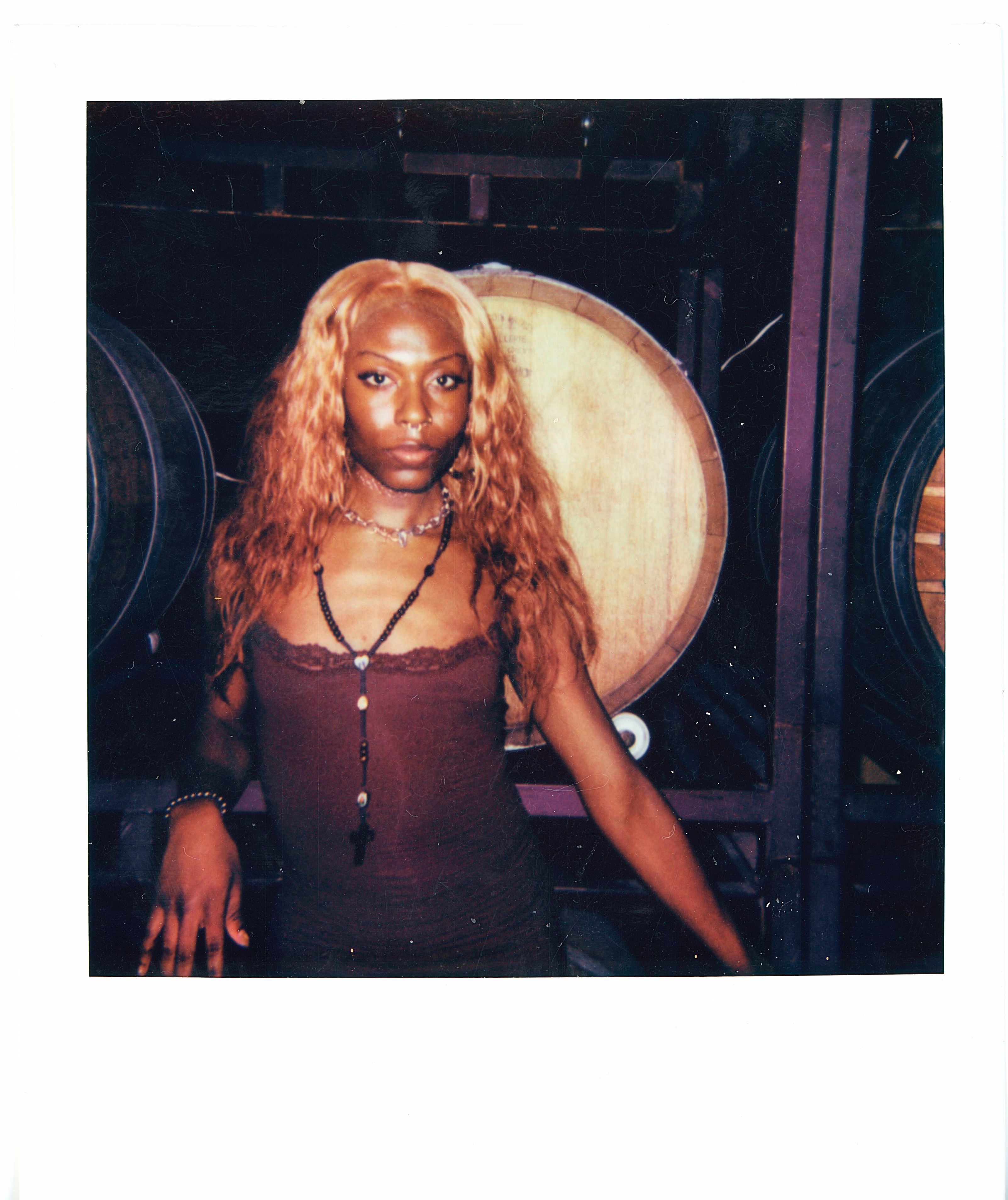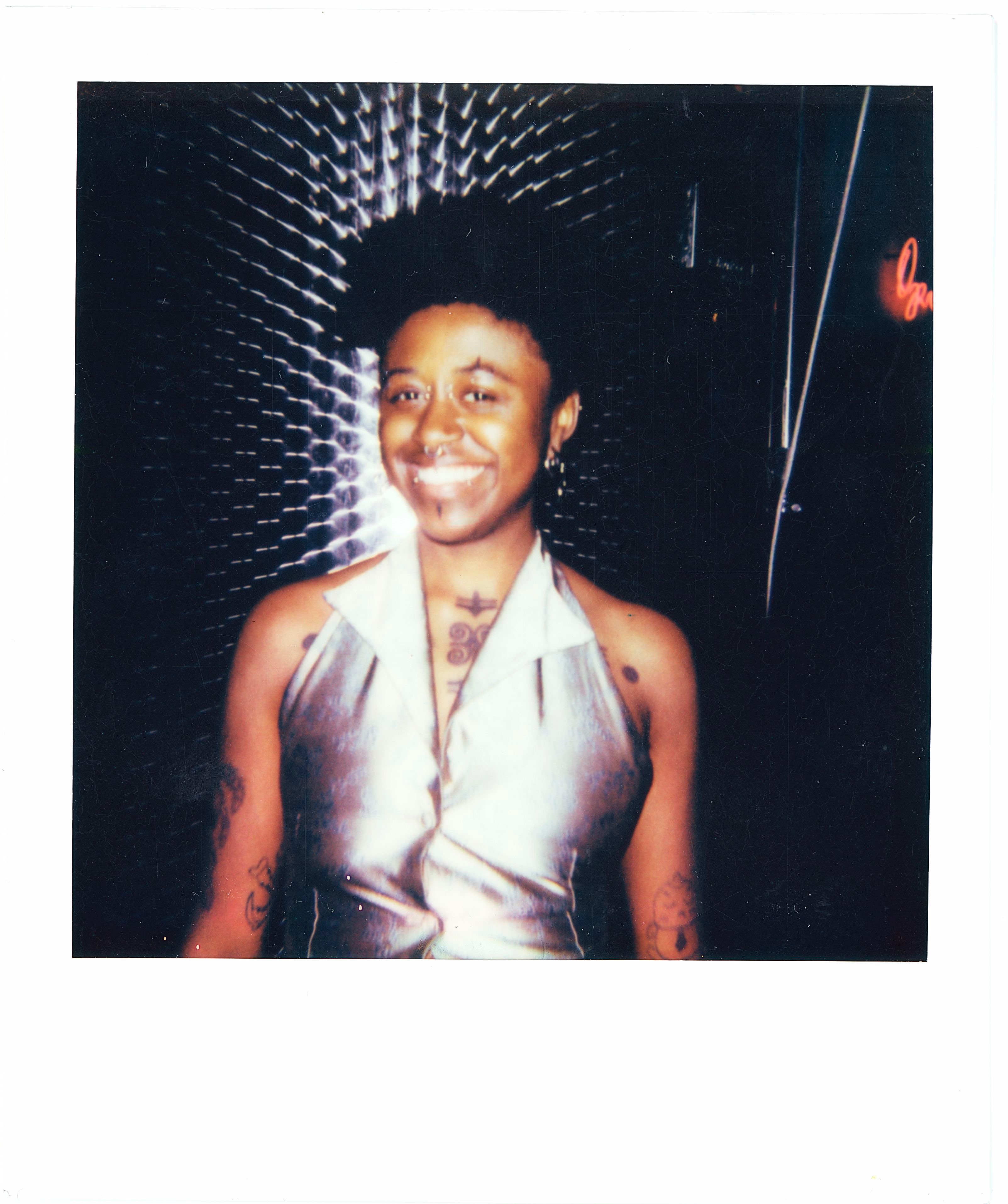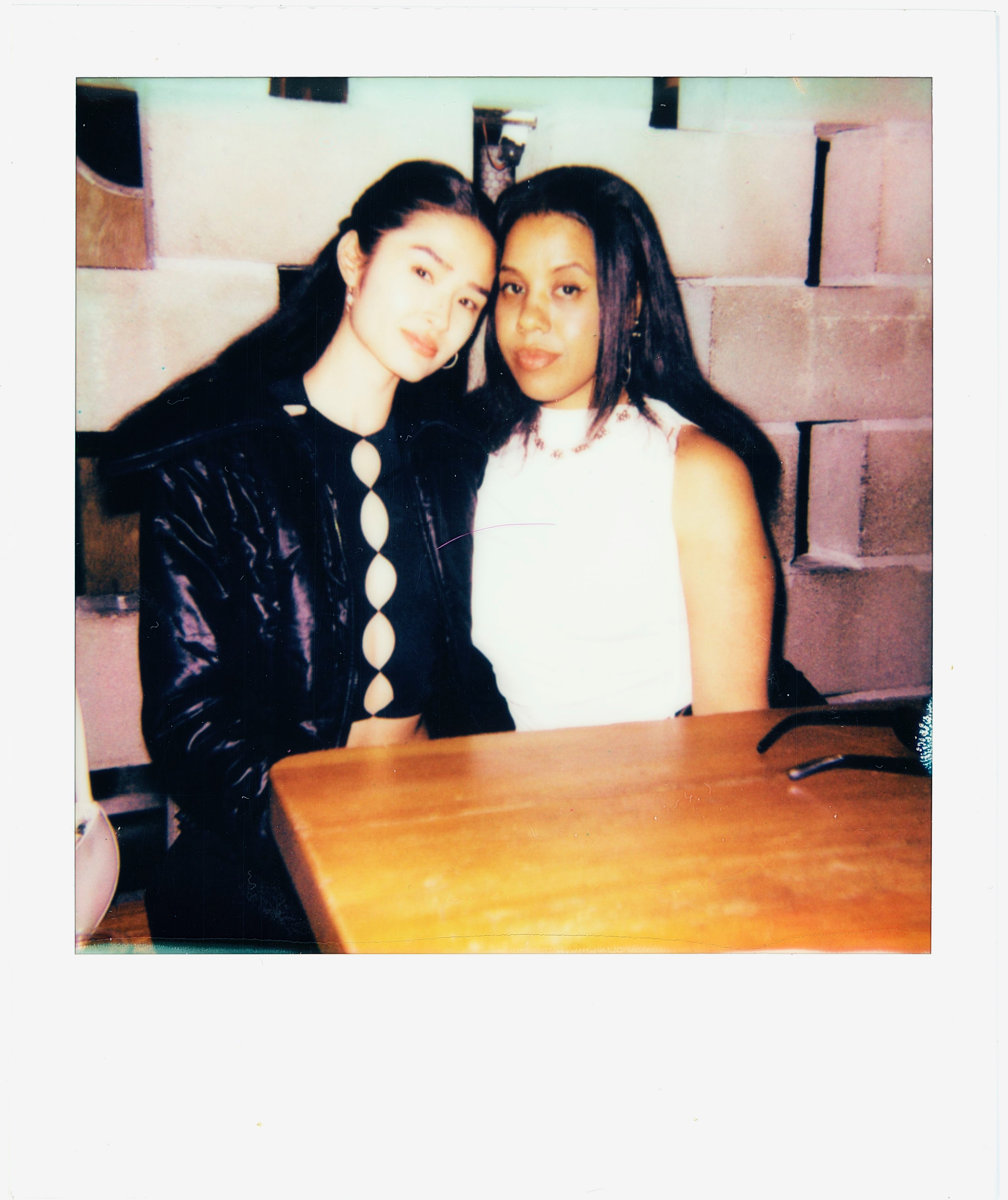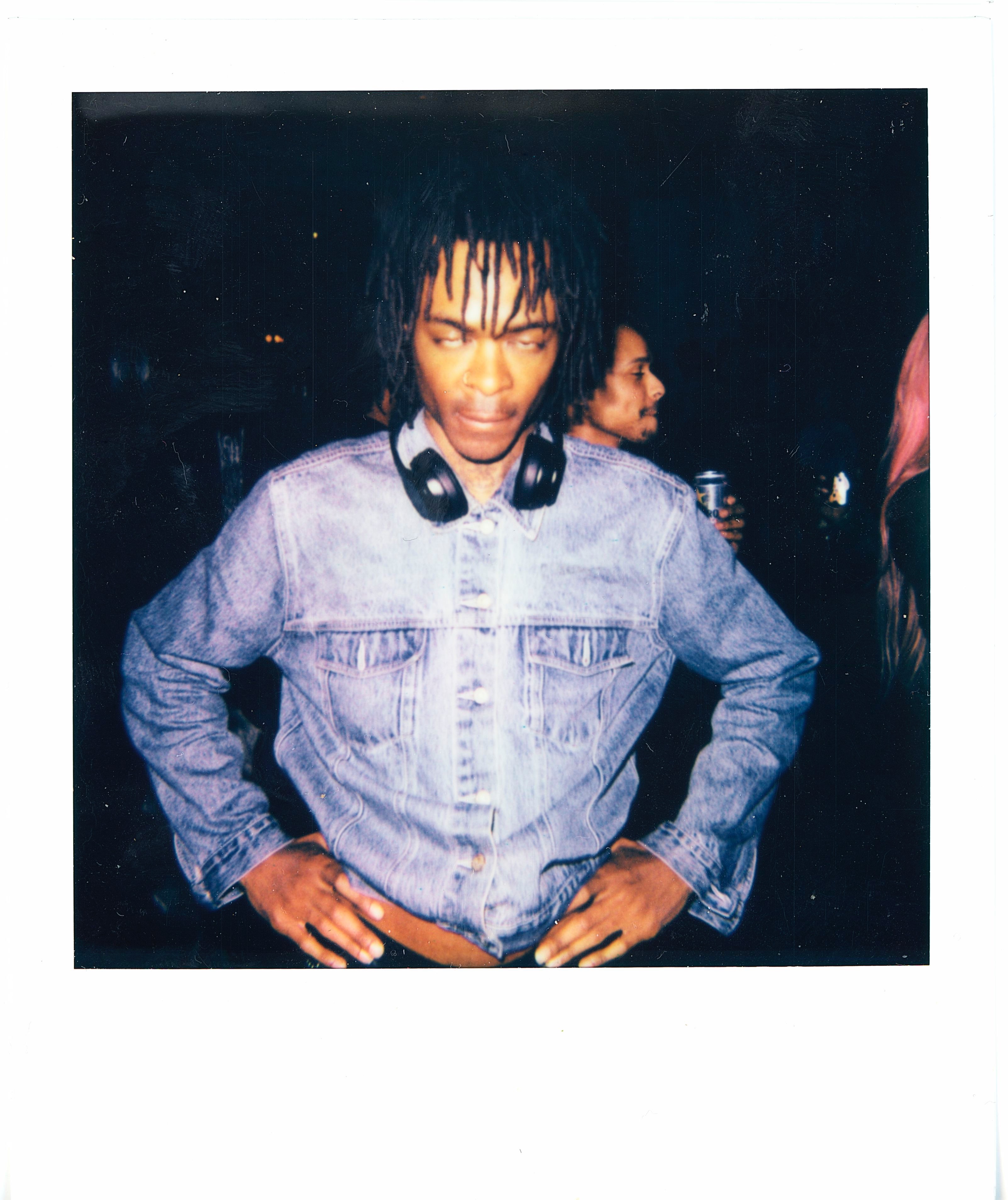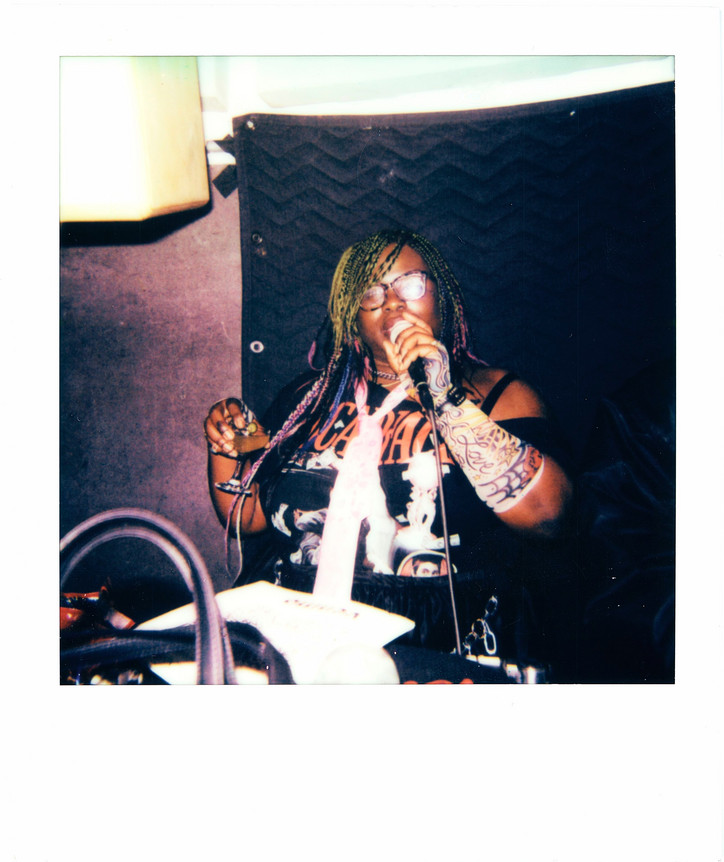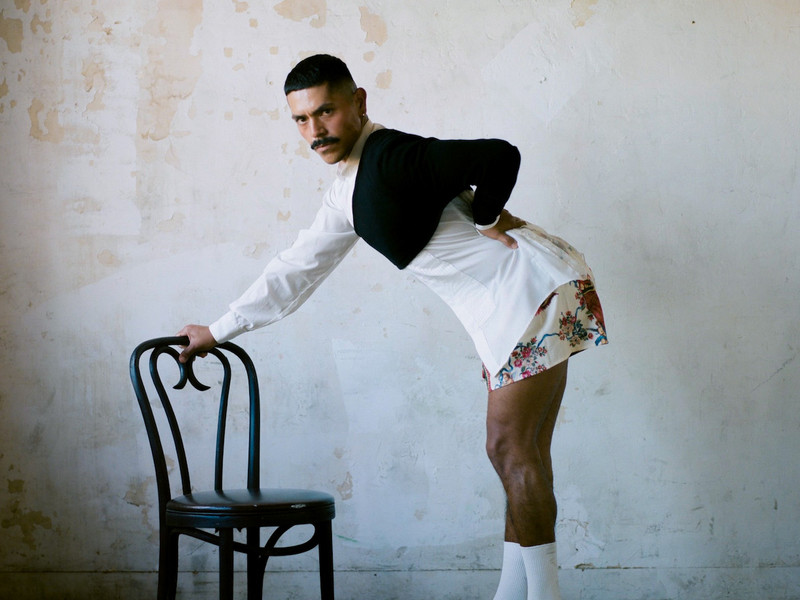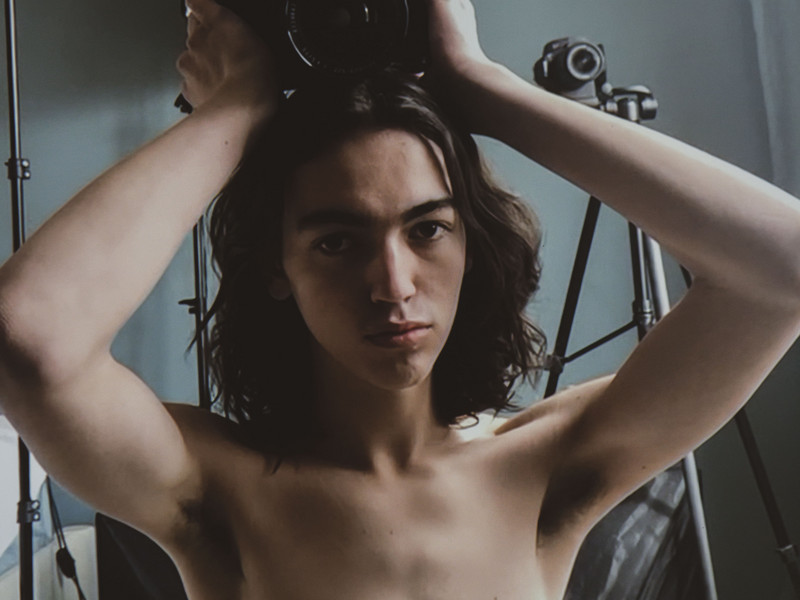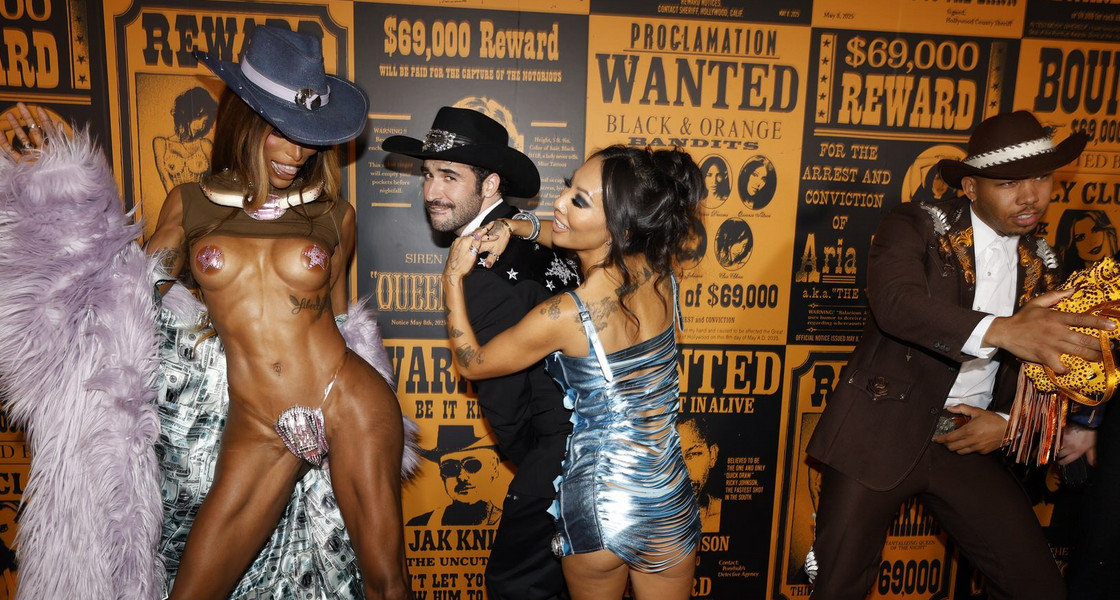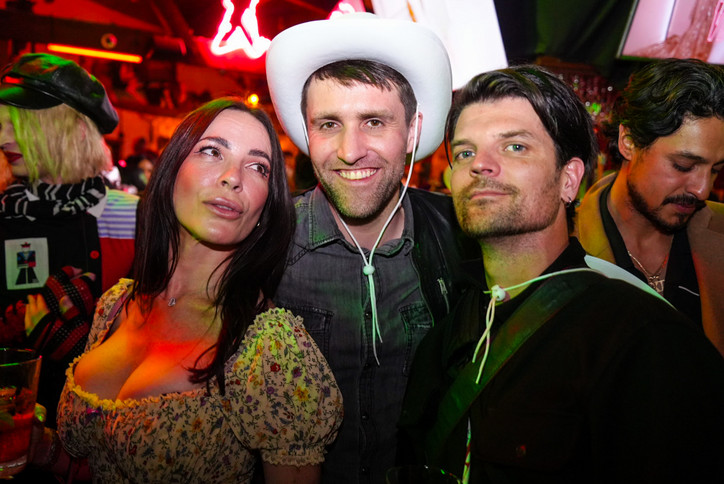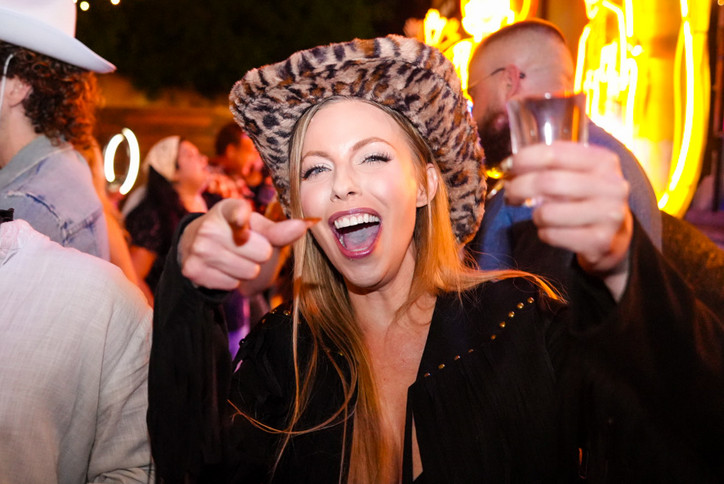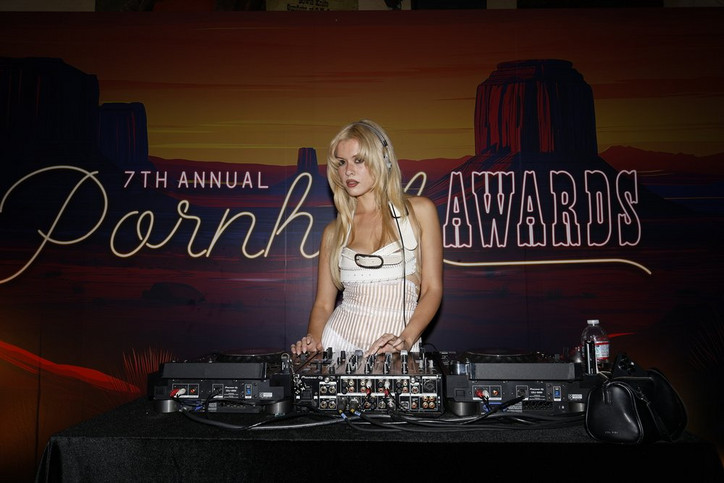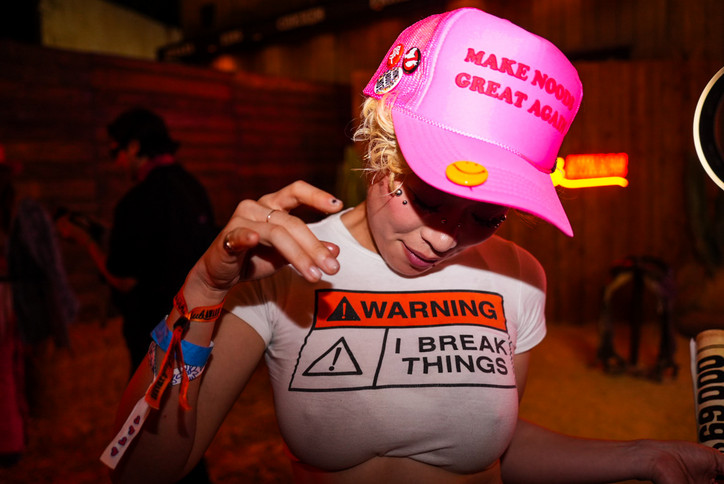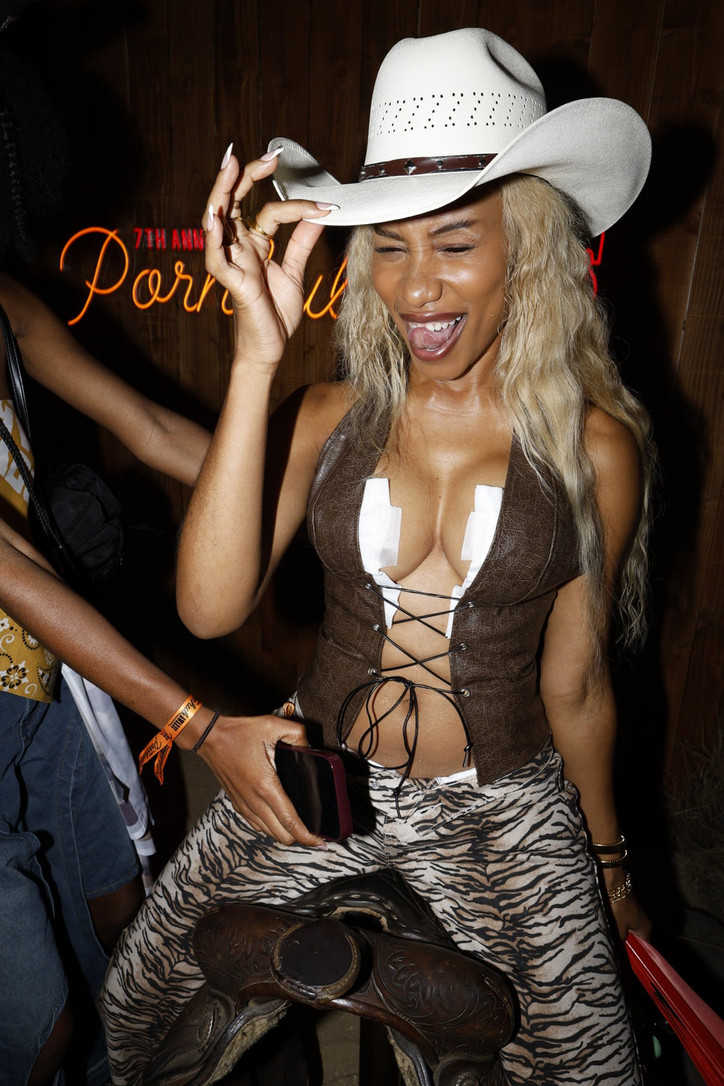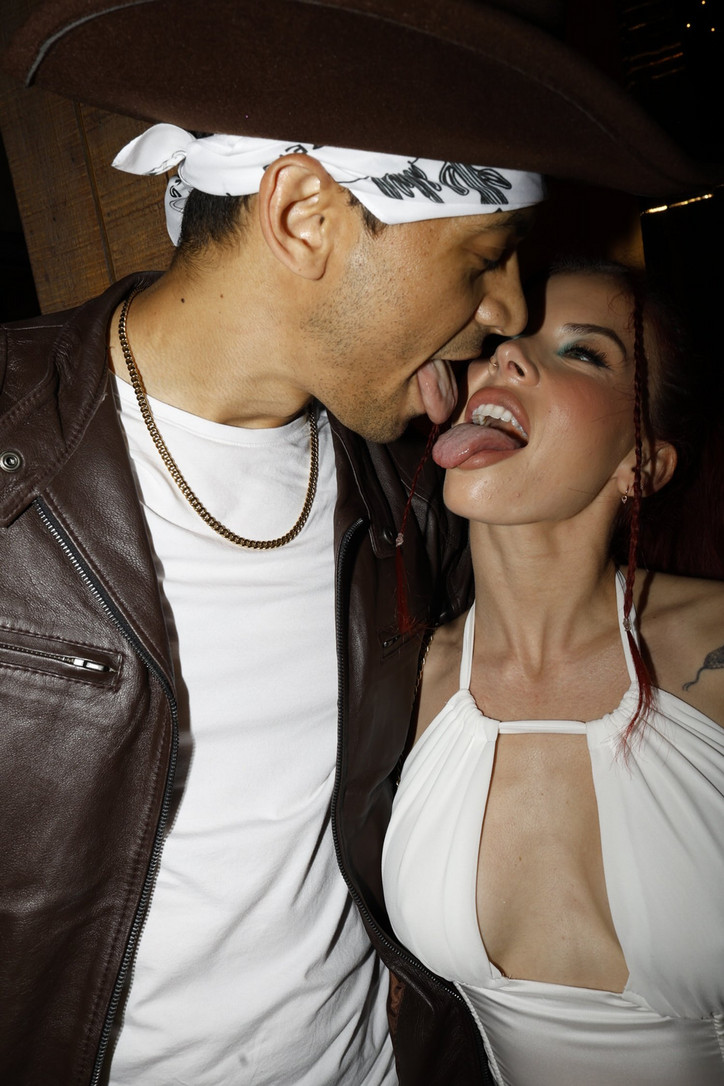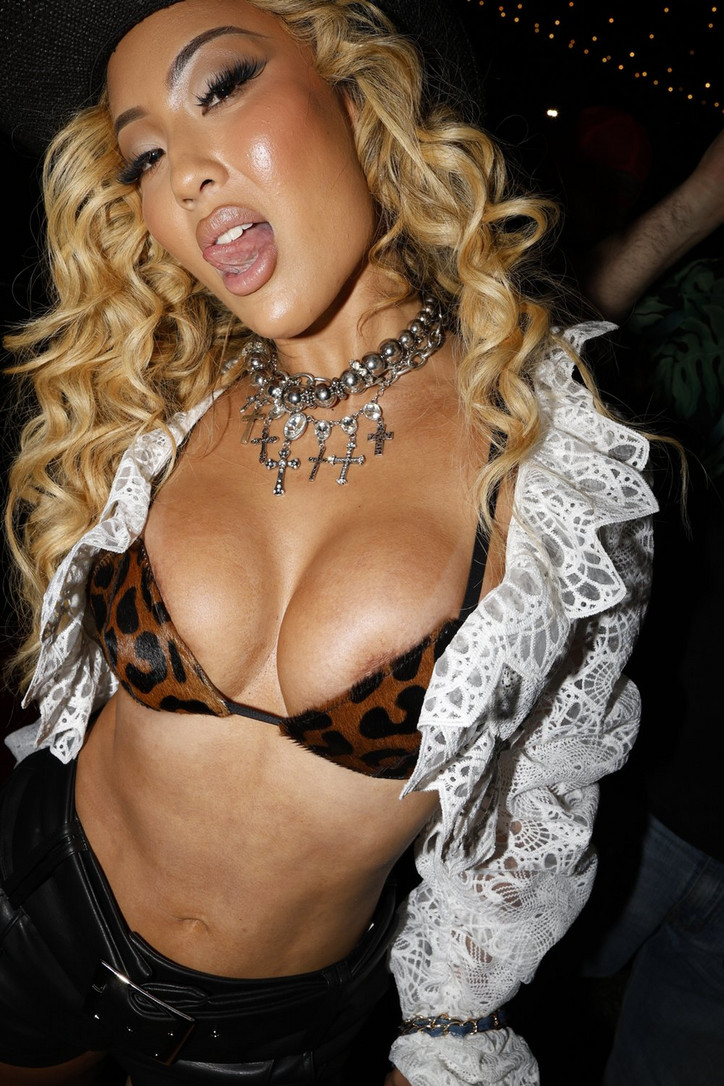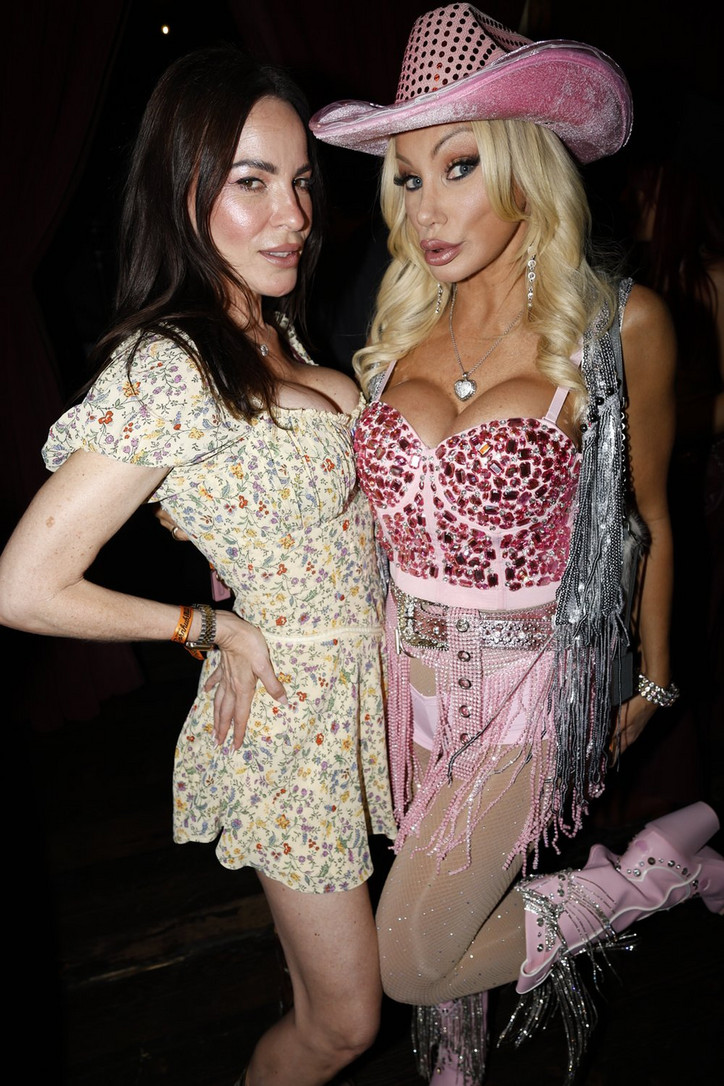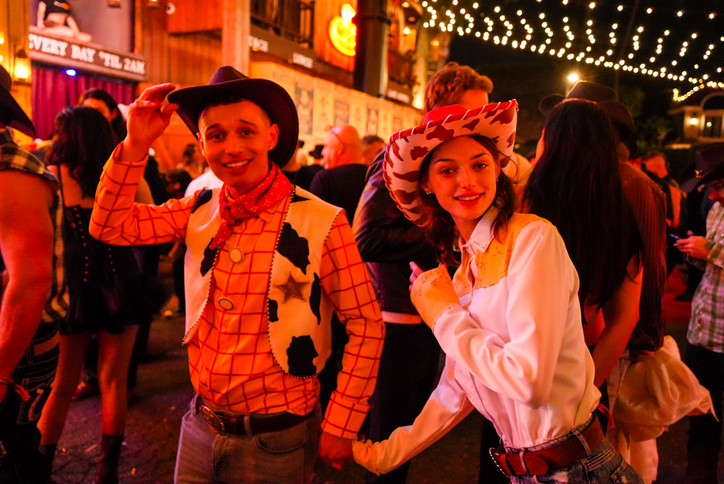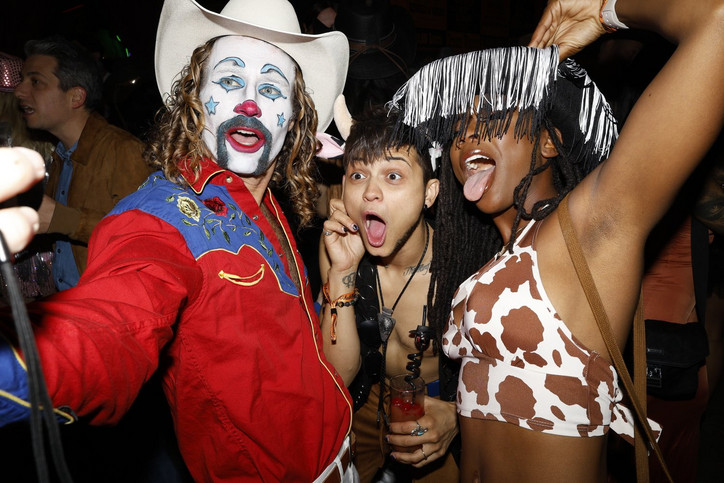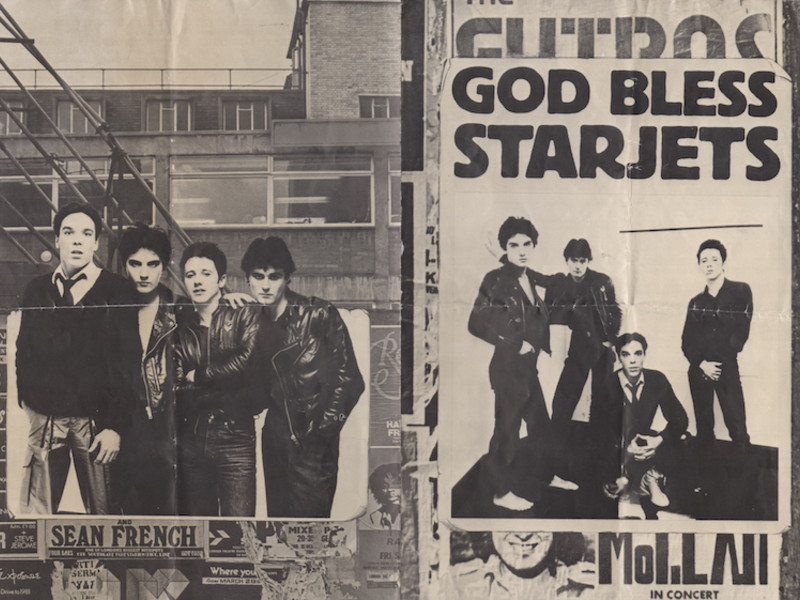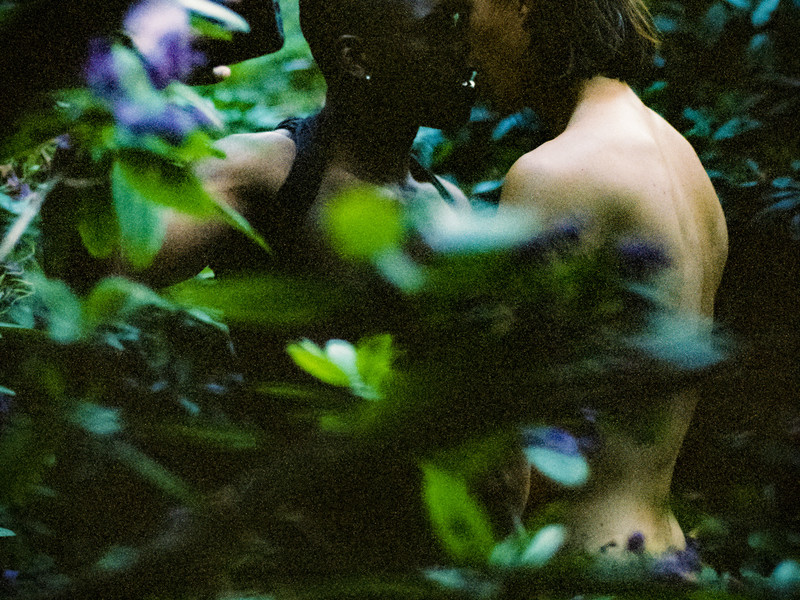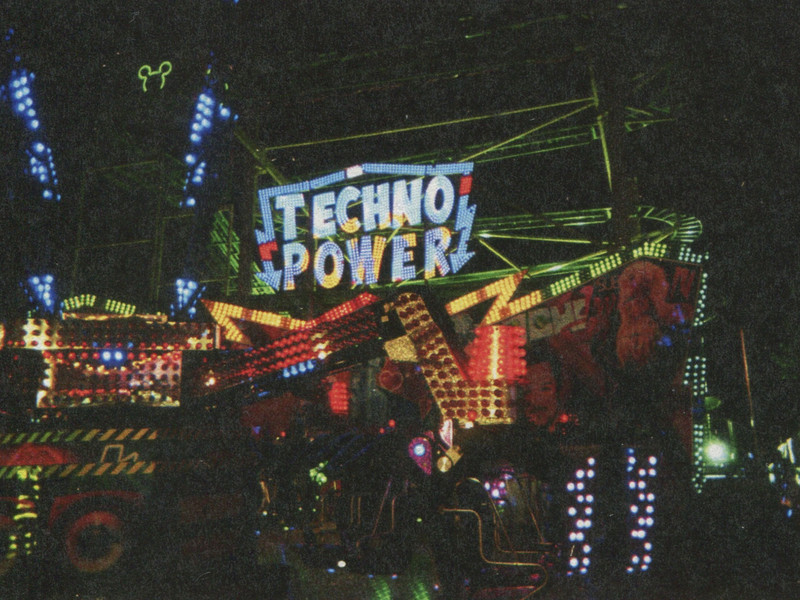Matt Starr Has A Lot to Say
As the co-founder of Dream Baby Press, Starr champions a kind of do-it-yourself, populist poetry that can be written and ingested on-the-go. “There is no barrier to entry,” he says of Dream Baby’s literary events — an earnestness that is sometimes hidden in MOUTHFUL’s casual, almost indifferent whimsy. Office spoke with Starr about the role of humor in MOUTHFUL, the trials and tribulations of indie publishing, and Dream Baby’s experimental future.
Terry Nguyen— You wear so many hats, as a producer (for your day-job at Substack), editor, small-press founder, and now poet. When did you start writing poetry?
Matt Starr— I started writing for fun and for myself starting in 2016, 2017. Around the same time, I was making a remake of Annie Hall that starred seniors with a cast of 80- and 90-year-old actors as an art project. I totally fell in love with older people while making that and became best friends with the star, who was 94 at the time, and we remained close until he passed at 99. That experience really changed my life. And throughout, poetry has always been in the background. Then, the pandemic hit. I got dumped. I moved to the Upper West Side, and there was no opportunity to shoot, since we were working primarily with older people. I started reading a lot more poetry, writing a lot more poetry, and it was the first time where I felt in control creatively, where I didn’t have to ask other people’s opinions as to what I wanted to put down on the page. I was really writing to make myself laugh. And it was the first time in a long time I was having fun making stuff.
How did you come to write and produce this collection?
During the pandemic, I was living near Central Park, and I would run around topless. I felt so free. Nobody was around. One of the themes of MOUTHFUL is body issues. I was reading a ton of poetry and running around, and while on jogs, I would dictate into my phone, and that's kind of how it all started. All of a sudden, I realized I had hundreds of poems.
During this time, Zack [Roif] and I started Dream Baby Press. We started it because we wanted to throw literary events that were fun and exciting and shared our sensibility and ethos. There is no barrier to entry. You didn’t have to like poetry to come to our events. You didn’t have to read poetry. I was reading a lot of punk biographies and I really aligned with the DIY ethos of punk. I wanted to follow in that tradition.
I ended up getting a book deal, but turned it down and then that publisher became an important mentor along the way. I wanted to learn how to make a book, and it was important to me that before Dream Baby publishes anyone else’s book, I should probably learn and make all the mistakes with mine. I got Elinor Hitt, a PhD candidate at Harvard, to be my editor, which was a huge boost of confidence.
A few poems in MOUTHFUL are published in the New Yorker’s humor section under the title, “Some Poems About A Girl I Like.” This is kind of an obvious question, but do you intend for your poems to be funny? (One of my favorite lines is from “Home on the Range.”) What’s the role of humor in your work?
At the launch, [my girlfriend] Mackenzie Thomas gave a speech, where she said, “Matt writes to make himself laugh.” I think I really needed laughter and humor in my life when I was writing these poems after a breakup. The poems and writing I gravitate towards are not self-serious. I think the Trojan horse in my writing is humor. I'm not intentionally trying to be funny, but I think it's like, Why does somebody walk the way they walk or talk the way they talk? Fun is also really important to me. I wanted the process of making and writing these poems to be joyful.
I started reading publicly and performing in 2020 once things opened up, and people would always come up after an open mic and tell me they liked what I did, even if they didn’t usually like or read poetry. I didn't get an MFA. I was not trained as a writer. I studied conceptual art. But I think the throughline with all my work is a sense of humor and sincerity. Even if there is something taboo, I like there to be a sweetness or humor to soften the edges.
“Self Portrait” is a poem about a self-portrait that the speaker’s child self tries to draw. What’s the lore behind the poem and the Bambi drawing?
I was in the special ed for most of my childhood. There was not a lot of schooling going on, but this one teacher, Ms. Levitt, would let us chase our interests and I became really obsessed and fixated on things. Bambi with boobs was one of those images I would draw over and over again. Being in special ed taught me so much empathy and nobody wanted to be there, but I really treasured that time in my life.
There’s another poem with a Marge Simpson drawing at the end. I didn’t draw that but I paid this kid to draw Marge naked. Back then, you had one home computer and porn just wasn’t as accessible. We had printouts we gave out at the opening, and in the drawing, you can see how he drew my hand over her breasts and I made him erase it. I think it's because I wanted to see her full, bare breasts and not have it be obscured by a hand. I just wanted the whole thing to be as horny as possible. After she read the book, I think Jemima [Kirke] said this book is about shame and owning that feeling. It’s about finding the beauty in shame and discovering myself through all of that, and it’s cool how there’s evidence in the drawings to point to.
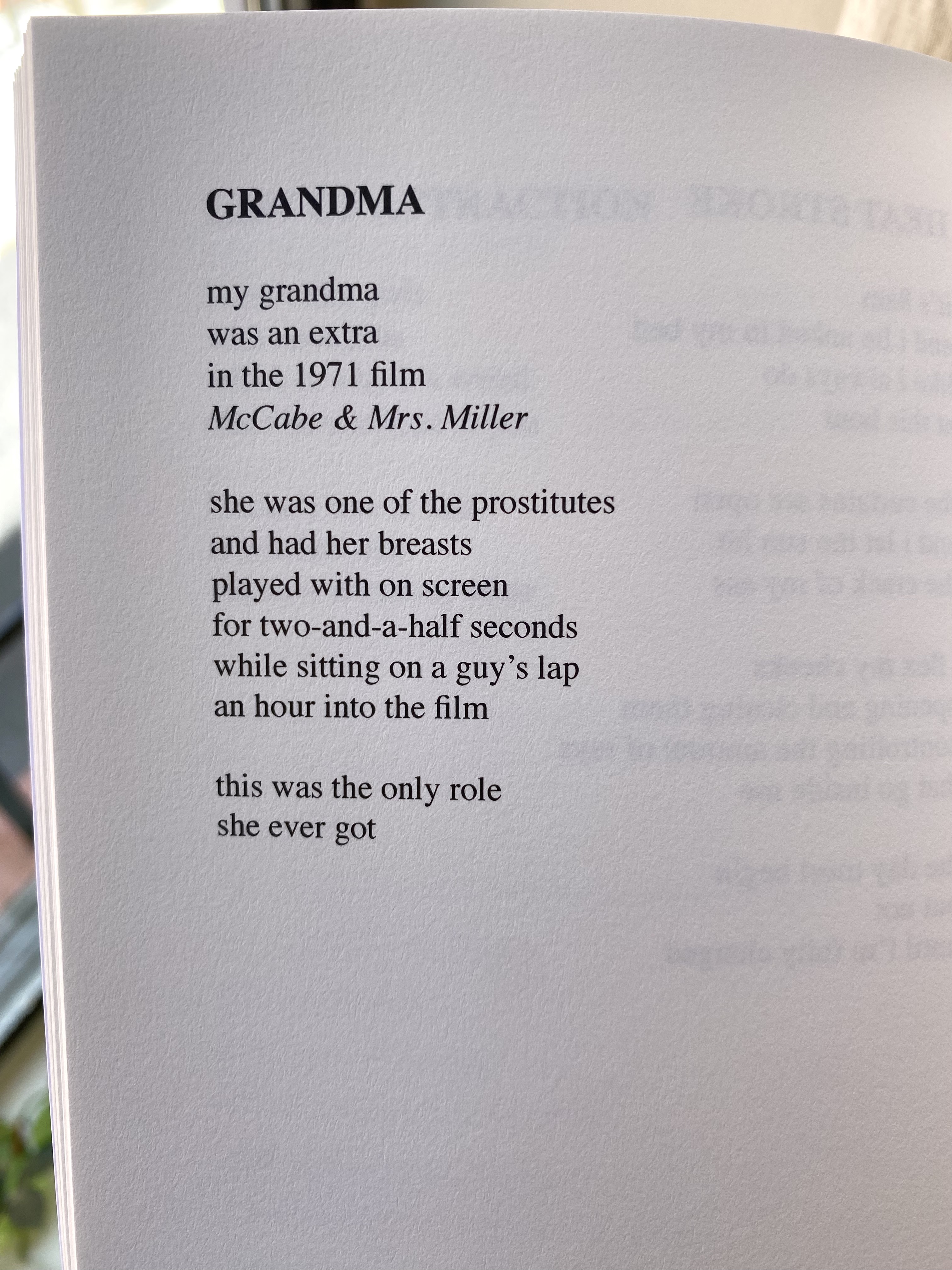
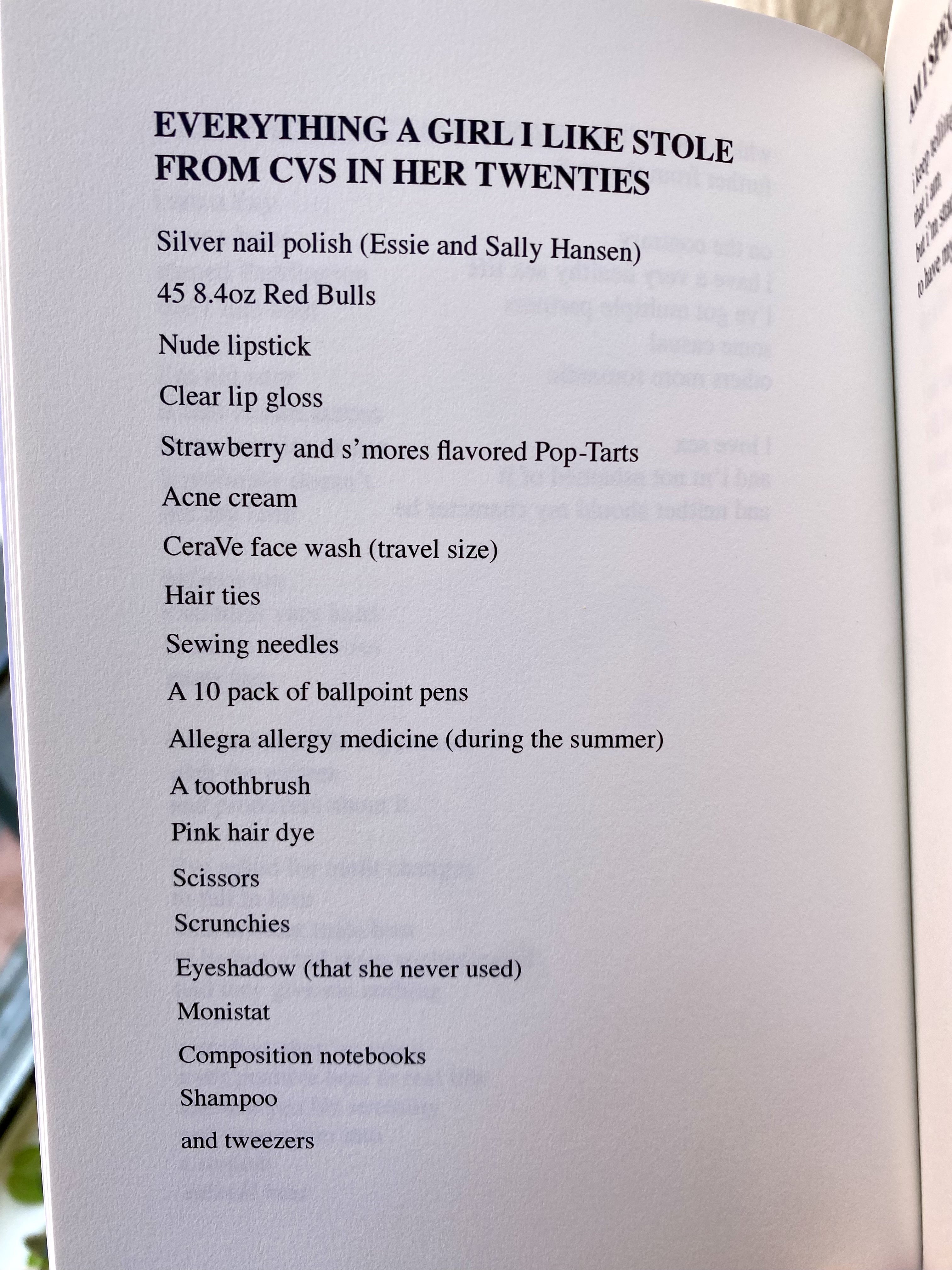
Autofiction is a hot topic right now. Almost every writer I know writes from personal experience, but some are more quiet about it than others. MOUTHFUL sounds diaristic, but I’m not going to assume it’s all autobiographical. How much of it is “real” vs. fiction?
I don’t really know much about autofiction. I’ve heard the term, but I don’t know what it means. For me, I write from two places: diaristic and fantasy. Because of where I was at while writing MOUTHFUL, I really lived in my head, and a lot of my poems became manifestations of the fantasies I was imagining. Some have been worked through and I have successfully lived out some of these fantasies, but it’s a balance. Some are partially diaristic and some are partially fantasies I’m having and working through.
A few poems in MOUTHFUL are written in a list format. Others are very informal and short. Were there any poets or writers that you took stylistic inspiration from?
I was really drawn to Peter Orlofsky, Richard Brautigan, and Renee Ricard. I love how you could open one of their books and see the world in a different way and each had their own sense of humor in their poems. Sometimes there’s spelling mistakes or drawings and they’re serious artists but I don’t know how seriously they’re taking themselves, you know? It feels like they’re having a lot of fun.
Because of my background in film, I think I approach my poems a little bit like cinema. I think visually about what’s happening and how to write a scene. But in terms of inspiration, I got it from Nora Ephron and the romantic comedies I was watching. I was reading a biography about Lou Reed and the Velvet Underground. And as I was falling in love with Mackenzie, her life became like poetry to me.
I love lists. I love how a list reminds me of an old recipe from Julia Child. I love seeing how information is codified and put together in that way. Visually, it’s just so beautiful. It’s actually not fun to read those poems out loud, but looking at them is beautiful. I love working through some ideas almost mathematically in a list. It's almost like a thought problem, but to me, a list is such a poetic way of thinking through and connecting ideas and feelings.
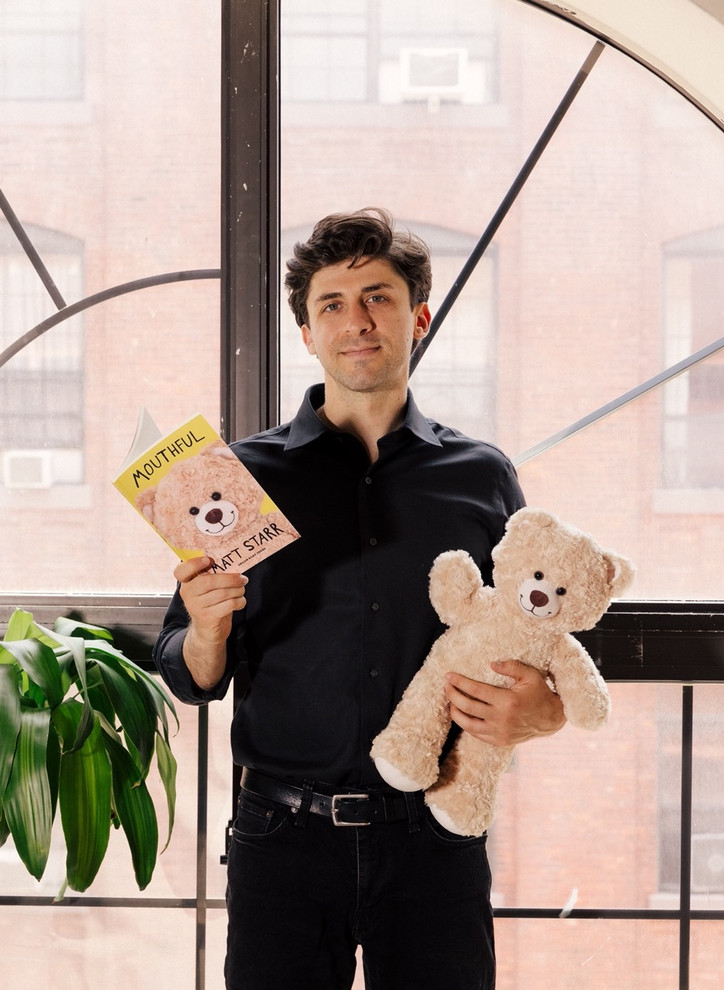
This is your debut book and Dream Baby’s first release. What’ve you learned during the process of publishing your own work?
The actual writing of the book, I think, was the easy part or rather easier part. I have this joke with myself that indie publishing made me hate indie publishing because making this book kicked my ass for a few months. I also wanted a specific look and feel to the book, but I had to learn how to communicate all these things to a printer. Like, I wanted the paper to feel like paper: eggshell white with natural paper stock. The process took so long, and it took many attempts to get there.
Dream Baby isn’t really a business and I’m not a designer. I had some really good friends step in to help me and give the book support. Publishing is really hard. That really surprised me. There’s no Warby Parker version of making a book yet and I have so much respect for anybody who takes the time and effort to publish independently. It’s really fucking hard.
What’s next for you and Dream Baby?
We have a couple of books lined up for Dream Baby. I’m really excited to be going to battle for another writer and have a little distance from the process because I was so pedantic and neurotic about my book. I worked so hard for what appears to be a very simple book. Now that I’ve learned the language, I’m excited to put that to work for the other writers we have on board.
Dream Baby is in a great place. We can do whatever we want, and I’ve gotten to work with so many artists and writers I’ve admired. It’s opened up so many opportunities to do fun, weird things. It has this amorphous form, but now we’re publishing which has been a long time coming. We also throw these crazy literary events and I’m excited to push those even further. I’ve been asking myself for two years what my version is of a book launch party and now I know. I spent four months putting it together, and it was one of the best nights of my life.
We didn’t set out Dream Baby to become what it’s become. Sure, it’s a little more erotic and set in weird spaces, but there was no expectation. I really like sitting in that experimental space where we can say yes to collaborations with people who we find interesting. I have no idea what’s going to happen, but that’s what I find so exciting.

